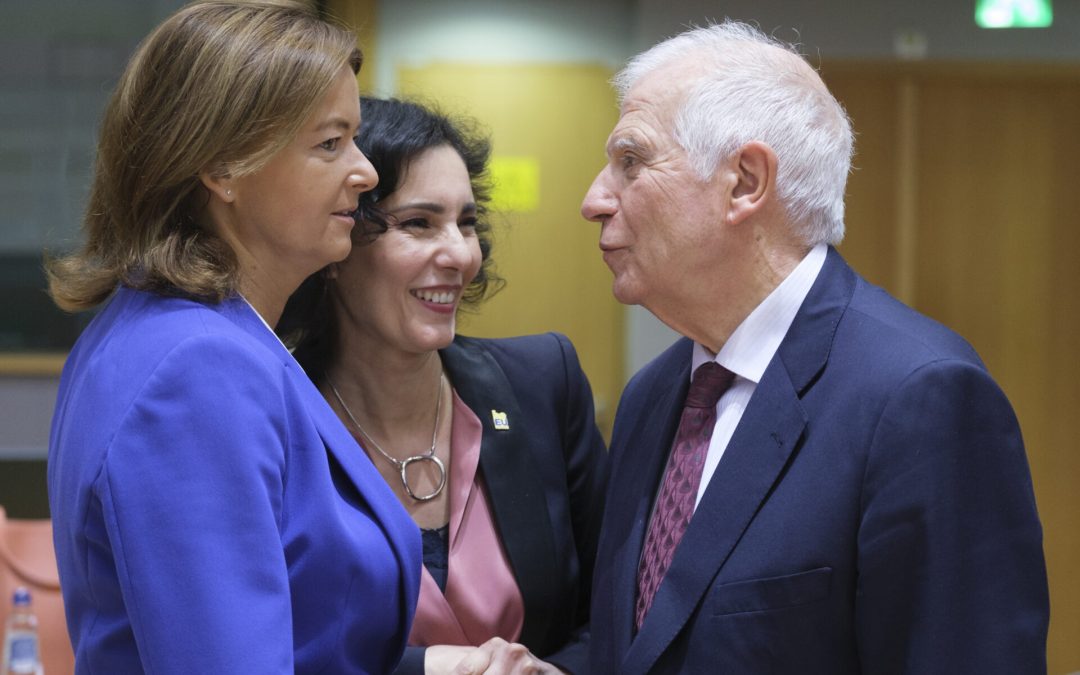Lahbib is nominated by Commission President Ursula von der Leyen as a candidate commissioner for Preparedness and Crisis Management and for Equality. Her complex portfolio has resulted in no less than six committees being allowed to question her before the European Parliament decides whether she is suitable as a commissioner and whether she is the right person for the powers allocated to her.
As expected, several parliament members asked questions about what may have been Lahbib’s most challenging period as foreign minister in the Belgian federal government: issuing visas to a delegation from Iran in June 2023, which almost led to her resignation. “Have you come to new insights in the meantime?” Assita Kanko (N-VA) wanted to know. Lahbib replied that the Brussels government was responsible for inviting the mayor of Iran, “against the advice of my ministry”. The issue ended last year with a vote of confidence in the Chamber, from which Lahbib claims to have learned that as a commissioner she wants to collaborate with the European Parliament “in the same spirit”.
Her trip to the Ukrainian peninsula of Crimea in 2021, then still as an RTBF journalist, was also brought up. This led to controversy in Belgium because the trip went through Russian territory and because Lahbib had made the trip on invitation. In Parliament on Wednesday, she denied being invited by “Putin’s daughter”. “That was by an artist living in Belgium,” she said.
Lahbib seized the question to emphasize her attachment to the independence and sovereignty of Crimea and Ukraine. She stressed that she has always advocated sending F-16s and humanitarian aid to Kiev, that she has traveled to the Ukrainian capital several times, and last month visited the military hospital in Neder-Over-Heembeek with President Volodymyr Zelensky. “And under the Belgian EU presidency, the historic step was taken to open accession negotiations with Ukraine and Moldova.”
 go to the original language article
go to the original language article
